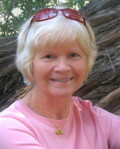Scalp Dance, A Sam Chitto Mystery
Discussion Questions
Use this guide to facilitate your library or book club’s conversation about the book.
- Clifton includes elements of American Indian spirituality in her novels. How does spirituality drive the action of the characters in this story? Discuss how the Prologue sets the stage.
- Chitto’s wife, Mary, has recently died. Clifton devotes many paragraphs to Chitto’s beliefs that Shiliup and Shilombish, inner and outer shadows, are nothing more than superstitions. How do Chitto’s beliefs change throughout the novel?
- How does Clifton’s description of the Oklahoma landscape enhance the reader’s understanding of the physical and cultural geography of the American Indian people living there?
- Sam Chitto is not only a lawman but a geologist. Discuss how Clifton uses his collection of worry stones and his introspection about the history of the Earth to enhance the story.
- Though Clifton has Native American ancestry in her family, she is not a member of any nation; however, her portrayal of American Indian culture is central to her novels. Do you think a writer of culturally specific literature needs to be a member of that culture? Why or why not?
- Clifton highlights some ceremonial rituals in her novel. What role do these rituals play in the story and in the lives of the characters.
- What is more interesting to you as a reader: the case the detectives investigate, or the life and culture of the American Indian detective?
- Independently governed reservations exist in many western states. The Indian Removal Act, signed by President Andrew Jackson in 1830, was intended to provide other indigenous nations a similar homeland in Indian Territory. However, these boundaries broke down in Oklahoma. As a group, discuss your knowledge of the Removal, the Dawes Commission, the politics that created the checkerboard, and the effect of these problems on the native peoples.
- In the story, Chitto meets Leslie Anderson, a cultural anthropologist doing comparative research between the old ways and values of American Indians and the resurgence of these ways in contemporary life. As a group, compare the physical removal of the indigenous peoples to Indian Territory with the loss of their history. Which do you think is worse: losing your homeland or losing an identity? Name other groups that have been similarly affected.
Ask group members to share their experiences with American Indians and/or visits to powwows.




